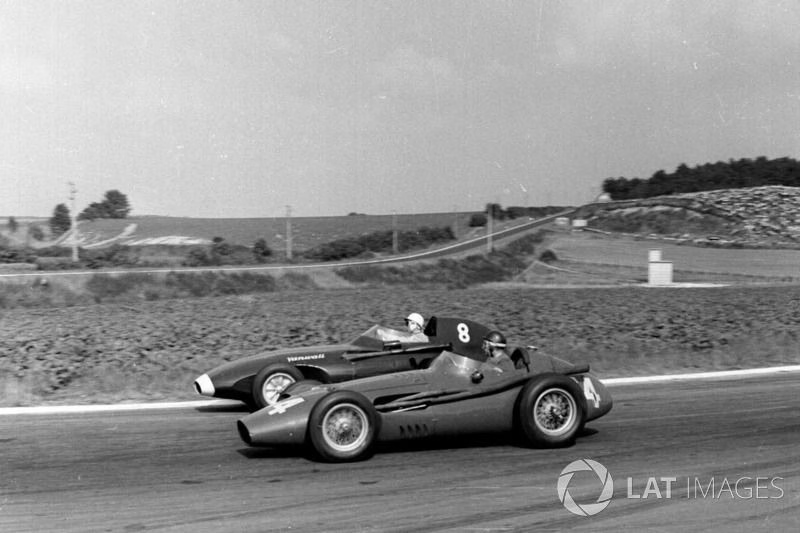Picture the scene: a gala dinner in Buenos Aires with hundreds of dignitaries present, honouring the five-time world champion Juan Manuel Fangio. But this is a solemn rather than a joyous gathering.
It is October 1958 and Argentina’s sporting hero has a message: “I will never race again in the rest of my years. Champions, actors and dictators should always retire when they are at the top.”
Fangio’s retirement shocked the racing firmament because his speed, commitment and ruthless determination to occupy the best machinery departed so abruptly. From Alfa Romeo to Maserati, Mercedes, Ferrari, then back to Maserati again, he’d always ensured he had the fastest cars to maximise his phenomenal gifts behind the wheel.
And then, having won his fifth world title in 1957, he announced that he would not be signing a contract for the following year and would simply pick and choose which races he entered. This arrangement did not last long.
Fourth place, 53s down, in a privately entered Maserati 250F in the 1958 season-opening Argentine Grand Prix – otherwise more notable for Stirling Moss claiming the first world championship victory for a rear-engined car – signified the beginning of the end. Fangio won a non-championship race at the same venue three weeks later but only contested one more points-paying Formula 1 race, failing to qualify for the Indy 500 and retiring from the 500-mile ‘Monzanapolis’ event in between.
At the French Grand Prix at Reims, Fangio was tempted to try Maserati’s new ‘Piccolo’ 250F, lighter and shorter and now endowed with modern telescopic dampers. As Mike Hawthorn streaked to victory, Fangio spent the last 35 laps without a functioning clutch and inherited fourth place on the final lap, two and a half minutes behind the winning Ferrari.
Parking outside his pit box, Fangio told his mechanic: “It is finished.” He was 47 years old.
Juan Manuel Fangio, Maserati 250F, Stirling Moss, Vanwall VW10
Photo by: Motorsport Images
Granted, there was much else going on in Fangio’s life. In February he had listened to, rather than competing in, the Havana Grand Prix sportscar race after being kidnapped by Cuban revolutionaries. At home, his business empire faced headwinds in the turmoil following the deposition of President Juan Peron, the consequences of which had also tipped Maserati into bankruptcy.
“The exhilaration of racing a smooth-running car and the challenge…
Click Here to Read the Full Original Article at Autosport.com – Formula 1 – Stories…

